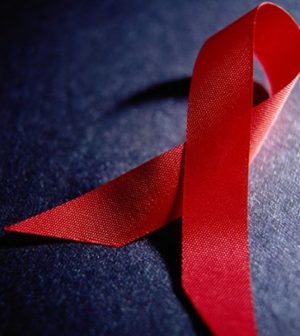- Recognizing the Signs of Hypothyroidism
- 10 Strategies to Overcome Insomnia
- Could Artificial Sweeteners Be Aging the Brain Faster?
- Techniques for Soothing Your Nervous System
- Does the Water in Your House Smell Funny? Here’s Why
- Can a Daily Dose of Apple Cider Vinegar Actually Aid Weight Loss?
- 6 Health Beverages That Can Actually Spike Your Blood Sugar
- Treatment Options for Social Anxiety Disorder
- Understanding the Connection Between Anxiety and Depression
- How Daily Prunes Can Influence Cholesterol and Inflammation
COVID More Lethal for People Living With HIV

Like certain health conditions including cancer, diabetes and high blood pressure, new research shows that having HIV or AIDS increases a person’s risk of catching and dying from COVID-19.
For the study, researchers from Penn State College of Medicine assessed data from 22 previous studies of 21 million participants in North America, Africa, Europe and Asia.
The investigators found that people living with HIV had a 24% higher risk of infection with SARS-CoV-2 (the virus that causes COVID-19), and a 78% higher risk of COVID-related death than people without HIV.
“Previous studies were inconclusive on whether or not HIV is a risk factor for susceptibility to SARS-CoV-2 infection and poor outcomes in populations with COVID-19,” said lead researcher Dr. Paddy Ssentongo, an assistant professor at Penn State’s Center for Neural Engineering.
“This is because a vast majority of people living with HIV/AIDS are on ART [antiretroviral therapy], some of which have been used experimentally to treat COVID-19,” he explained in a Penn State news release.
About 38 million people worldwide live with HIV or AIDS, according to the World Health Organization. Certain pre-existing conditions are common among people living with HIV/AIDS, which may contribute to the severity of their COVID-19 cases.
Among those who were HIV-positive, the most common pre-existing health conditions were high blood pressure, diabetes, chronic obstructive pulmonary disease (COPD) and chronic kidney disease.
About 66% of the study participants were men, with a median age of 56. Most of those with HIV/AIDS (96%) were on antiretroviral therapy, which helps suppress the amount of HIV detected in the body.
The beneficial effects of antiviral drugs (such as protease inhibitors) in reducing the risk of SARS-CoV-2 infection and death from COVID-19 in people living with HIV/AIDS remain inconclusive, the study authors noted.
Researcher Vernon Chinchilli, chair of Penn State’s department of public health sciences, said, “As the pandemic has evolved, we’ve obtained sufficient information to characterize the epidemiology of HIV/SARS-CoV-2 co-infection, which could not be done at the beginning of the pandemic due to scarcity of data. Our findings support the current Centers for Disease Control and Prevention guidance to prioritize persons living with HIV to receive a COVID-19 vaccine.”
The findings were published recently in the journal Scientific Reports.
More information
The U.S. Centers for Disease Control and Prevention has more information on COVID-19.
SOURCE: Penn State Health, news release, May 11, 2021
Source: HealthDay
Copyright © 2026 HealthDay. All rights reserved.










